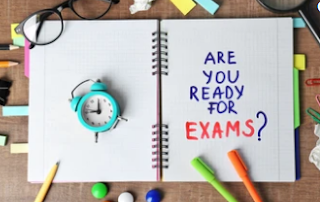Basic English Grammar Lessons


Non-essential Clause:
Which and that are Relative Pronouns. They are used grammatically in
different clauses. It provides additional information.
For example in Non-essential clause “which” is used
with a comma, for example:
The bridge, which has been recently constructed, saves almost two
hours to reach the next town. Here we are talking about the saving of time. Without a non-essential clause, the sentence makes sense.
Essential Clause:
The bridge that comes our way almost saves two to three hours to reach the next
town. It provides essential information.
Examples of Essential Adjective Clauses:
1.
The man who left his pocketbook is coming back for it.
2.
It is essential for us to
know which man.
3.
I do not remember the day that
my cousin was born.
4.
It is essential for us to
know which man.
5.
The time when I usually go to bed
changes in the winter.
6.
It is essential for us to
know what time.
Non-essential Adjective Clauses:
7.
Lisa, who takes ballet with
Michael, is my best friend.
8.
It is not essential for us
to know about ballet.
9.
2) I won the first prize, which
was a blue ribbon.
10. It is not essential for us to know the type of prize.
11. 3) My uncle, who lives on a country farm, said he would teach me how to ride a horse in my holidays
It is not essential for us to know where my uncle lives.
Worksheet No 12
Choose the correct option:
1. I met a person who was really in bad condition.
A) Essential clause
B) Non-essential clause.
2. My teacher who lives in a village invited me to visit his village.
A) Essential clause
B) Non-essential clause.
3. Last Sunday, I bought a book that I was looking for some days.
A) Essential clause
B) Non-essential clause.
4. The person who wants to know learns daily something new.
A) Essential clause
B) Non-essential clause
5. I saw a bird, which was very pretty.
A) Essential clause
B) Non-essential clause.
6. My teacher is the person who never comes late.
A) Essential clause
B) Non-essential clause
7. Ali who is my best friend always stands by me
A) Essential clause
B) Non-essential clause
8. The bridge that was built last year has fallen today.
A) Essential clause
B) Non-essential clause
9. Mr. Manana, the harness man, was a man of credence.
A) Essential clause
B) Non-essential clause
10. Speak out! what you want to tell me.
A) Essential clause
B) Non-essential clause
11. The books that are on the table are mine.
A) Essential clause
B) Non-essential clause
12. The book, which is on the table, is mine.
A) Essential clause
B) Non-essential clause
A) Essential clause
B) Non-essential clause
A) Essential clause
B) Non-essential clause
Visit Google:
"Question of the Day by Masood Sadiq"
for further worksheets
Comments
Post a Comment